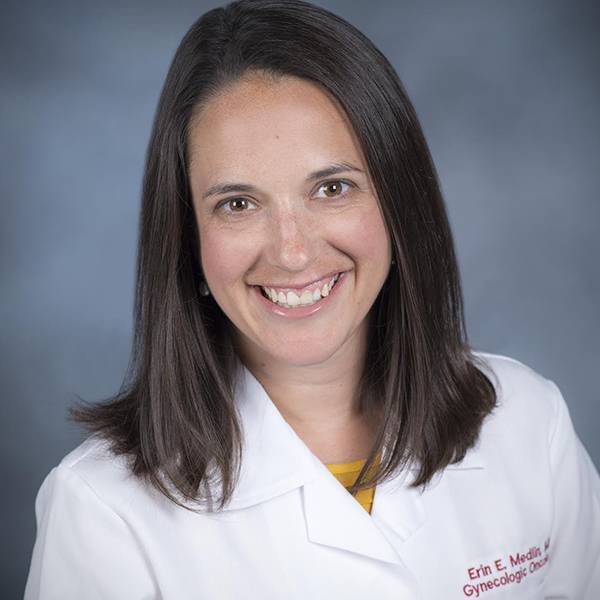
 September marks Gynecologic Cancer Awareness Month – a time to raise awareness for ovarian, uterine, cervical, vulvar and vaginal cancers. In the United States, more than 107,000 women will be diagnosed with gynecologic cancer this year.
September marks Gynecologic Cancer Awareness Month – a time to raise awareness for ovarian, uterine, cervical, vulvar and vaginal cancers. In the United States, more than 107,000 women will be diagnosed with gynecologic cancer this year.
For many years, awareness campaigns have focused on ovarian cancer awareness. Although ovarian cancer has the highest rate of death from cancer disease for gynecologic cancers, many women will experience other forms of gynecologic cancer, including uterine, cervical, vulvar and vaginal cancer. In 1999, September was designated as Gynecologic Cancer Awareness Month to bring attention to all forms of gynecologic cancer. Let’s talk about these cancers!
Endometrial Cancer
Endometrial cancer is the most common gynecologic cancer among women in the United States. In 2016, more than 12,000 women were diagnosed with endometrial cancer. Most women with endometrial cancer will present with vaginal bleeding after menopause or with irregular menstrual bleeding. Evaluation is done with imaging and biopsies. Most endometrial cancers will be caught early and can be treated with surgery alone, although some women will require localized radiation therapy. Some women, however, will have more advanced disease that requires radiation and chemotherapy. Recent efforts in the research community have focused on identifying new drugs to treat advanced or recurrent endometrial cancer. Endometrial cancer is finally getting some of the attention it deserves!
Cervical Cancer
Cervical cancer, although uncommon in the United States due to widespread screening programs, has a high incidence in Kentucky. More than 200 women in Kentucky are affected by cervical cancer each yearly. Cervical cancer is caused by the HPV virus, which can be prevented by the HPV vaccine, and thus prevent cervical cancer in addition to other HPV diseases like genital warts. Cervical cancer may be detected on screening pap tests, exam, or by symptoms of abnormal bleeding or pain. Cervical cancer is treated with surgery, chemotherapy, and radiation therapy. Cervical cancer, when caught early, may be cured. However, advanced cervical cancer can be challenging to treat. New treatments with target medications may provide new hope for patients with advanced or recurrent disease. Increased awareness of the HPV vaccine, the importance of cervical cancer screening and symptoms could help to save lives!
Vulvar and Vaginal Cancer
Vulvar and vaginal cancers are very rare in the United States. These cancers are caused by the HPV virus or by other skin conditions. They are detected by symptoms, such as itching, vaginal discharge, or vaginal bleeding. The diagnosis is made by biopsy. Treatment may involve surgery, chemotherapy, or radiation therapy. Although there is not a screening test for vulvar or vaginal cancer, recognition of symptoms by patients and their providers could allow for the disease to be detected early. Tell your provider if you are concerned!
Sarcomas
Sarcomas of the gynecologic organs occur as well. These often present as enlarging tumors of the uterus, ovaries or vagina. Symptoms include pain, pressure or bleeding. Evaluation by your gynecologist is important if you are experiencing these symptoms.
Spread the word!
There are currently more than one million women living with gynecologic cancer. Recognition of their disease, struggles through treatment, and continued journey through cancer helps to raise awareness of these diseases. Spreading the word of symptoms for gynecologic cancer, screening tests, and vaccinations may help to save women’s lives. Advocating for increased research for life-saving treatments will help researchers to find new medications and treatments for these diseases and the side effects that come with treatment. We have come a long way to start the discussion on “below the belt” cancers. Let’s keep it going!
If you have concerns about your gynecologic health, don’t be embarrassed about what’s going on “below the belt” – talk to your gynecologist!
Make an appointment with a gynecologist at UofL Physicians – OB/GYN & Women’s Health. Call 502-588-4400 or request an appointment online.
If you’ve been diagnosed with a gynecologic cancer, hope is available at UofL Brown Cancer Center. Call 502-561-7220 or request an appointment online.









